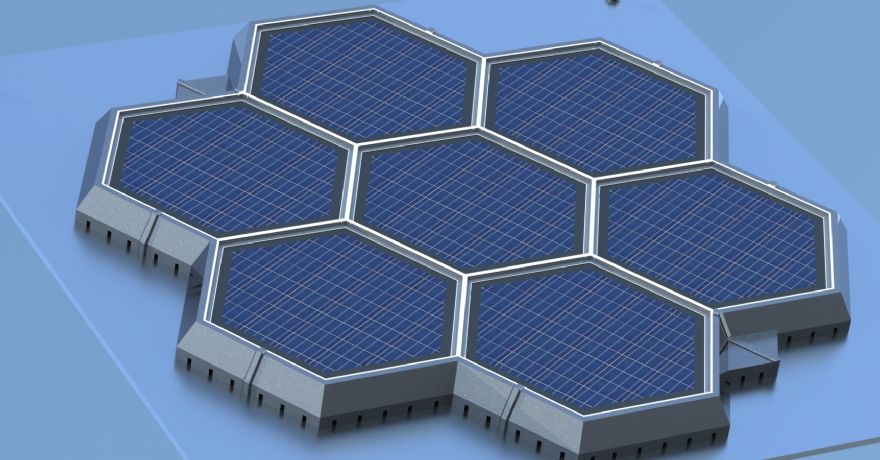
An ambitious company with its sights set on cleaning up the marine sector has developed an innovative graphene-based technology platform using solar photovoltaic cells to create electrical power, with potential for mass manufacture, with the support of engineers at the
University of Sheffield Advanced Manufacturing Research Centre (AMRC) North West.
Cheshire-based
Grafmarine Ltd is looking to bring to market an integrated solar energy and storage solution for marine vessels that aims to reduce diesel-fuel consumption on ships by up to 10%. As the marine industry moves towards zero emissions and demand for clean energy grows, solar power and new battery technologies can offer environmentally responsible energy generation.
Anika Ephraim, Grafmarine managing director, said: “The project we brought to AMRC North West is about refining the design of our technology. To ensure consistency and quality in large volumes, we need to automate the manufacturing process, and this necessitates some modifications to the design of the product itself.
“The intelligence and innovation that has gone into our solar cells, for example the non-toxic battery technology, as well as the honeycomb configuration, make them different from any panels currently on the market — we call this ‘solar plus’.
”AMRC North West has supported us to develop the high-end engineering behind the tiles, really raising the bar for what is possible in solar technology.”
Grafmarine worked with Adam Thornton, electrical and electronic technical lead at AMRC North West, which is currently based at interim facilities in Preston but will soon move to a purpose-built £20 million facility on the Samlesbury Aerospace Enterprise Zone.
3-D prototypesHe said: “Initially, this project was about evaluating the design of these solar panels. The business was using 3-D printed prototypes, but the goal is to use them on huge container ships, where each vessel will need a couple of thousand panels. 3-D printing is not suitable for making those kinds of quantities, so we supported the business with understanding options for injection moulding the panels, and the changes needed to their design.
“The next stage will be to work with this business to create large volumes of prototypes, as they need to understand whether the necessary connections and communications between the panels will be effective at scale.
“The impact of this technology could be huge. Marine container ships generate an enormous quantity of emissions but, because of the flex and other environmental factors, solar panels for use in a marine environment have proved difficult to design and manufacture. This is the first step in a long journey but could very well help with a serious global problem.
“Grafmarine is an ambitious company that pushes the boundaries of new technology. It’s exciting to work with a business like this and support them to develop new insights into what is possible.”
Ms Ephraim added: “There is a long way to go but we are also excited about the potential for the tiles to work in a port setting, as well as on the ships themselves at sea. Up to 85% of emissions from tankers happen in ports, close to towns and urban centres, and the option to use solar power generation technology like ours as an alternative, clean energy source would make an enormous difference — ports could become smart energy hubs benefitting local communities surrounding them, not just on-site services and ships.
“The regulations in the marine industry are changing, which means the demand for cleaner energy sources for tankers and bulk carriers is growing all the time. The potential market for our solar technology is huge as we are developing a product which is environmentally conscious at every stage in its lifecycle — a real game changer for the marine sector.”